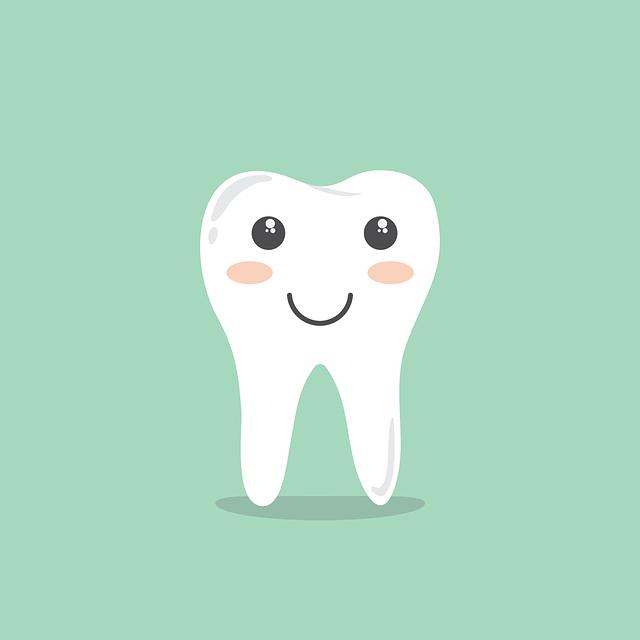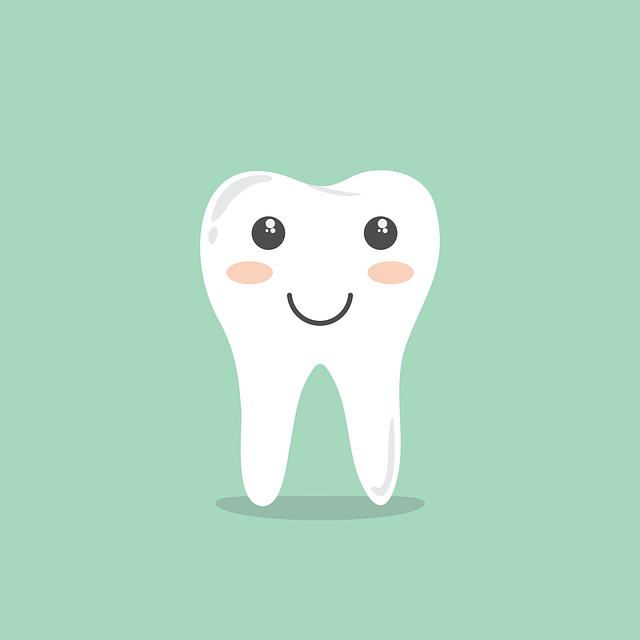Why Brush Teeth with Salt? Dental Benefits Unveiled
Have you ever wondered if there’s a natural alternative to commercial toothpaste that can keep your pearly whites shining bright? Look no further than your kitchen pantry, where a humble ingredient awaits its turn in the spotlight: salt. Yes, you read that right! Salt, the common seasoning found in every household, has been praised for its dental benefits throughout history. In this article, we will explore the reasons why brushing teeth with salt has become a popular practice, unveiling its remarkable advantages backed by scientific evidence. Prepare to be amazed as we dive into the world of dental care and discover the secrets behind salt’s undeniable power to enhance your oral hygiene.
1. The Science Behind Salt: Exploring the Dental Benefits of Brushing Teeth with Salt
Salt is a common ingredient found in almost every kitchen, but did you know that it also has dental benefits? Brushing your teeth with salt can help improve your oral health in several ways:
- Antibacterial properties: Salt has natural antibacterial properties that can help kill harmful bacteria in the mouth. This can reduce the risk of gum infections and cavities.
- Removes stains: The abrasive texture of salt can act as a gentle exfoliant, helping to remove surface stains on teeth and brighten your smile.
- Reduces bad breath: Salt can help neutralize odor-causing bacteria in the mouth, providing you with fresher breath.
When using salt for brushing your teeth, it is important to remember a few key tips:
- Use a small amount of salt on your toothbrush, as too much can be abrasive and potentially damage your tooth enamel.
- Brush gently in small circular motions, focusing on all surfaces of your teeth and gums.
- Rinse your mouth thoroughly with water after brushing to remove any remaining salt particles.
While brushing your teeth with salt can be beneficial, it should not replace regular brushing with toothpaste. Salt can be a useful addition to your oral hygiene routine, but it is always best to consult with your dentist for personalized advice.

2. Unveiling the Secrets: How Brushing Teeth with Salt Can Improve Dental Health
Brushing teeth with salt is a simple yet effective technique that can significantly improve dental health. Salt has long been recognized for its antibacterial properties, which help kill harmful bacteria in the mouth and prevent the formation of plaque. It also aids in reducing inflammation and soothing gum irritation.
Here are some key benefits of using salt as a dental care remedy:
- Natural Teeth Whitening: Salt acts as a gentle abrasive, removing surface stains and brightening your smile without causing damage to the enamel.
- Fights Bad Breath: Salt helps neutralize the pH level in the mouth, making it less favorable for odor-causing bacteria to thrive.
- Relieves Tooth Sensitivity: Rinsing with saltwater can provide temporary relief for tooth sensitivity by reducing inflammation and soothing discomfort.
When using salt for brushing teeth, it is important to remember a few guidelines:
- Use a small amount of salt (about half a teaspoon) and mix it with your regular toothpaste.
- Brush gently in circular motions for at least two minutes, ensuring all teeth surfaces are covered.
- Rinse thoroughly with water after brushing to remove any remaining salt particles.
While salt can be an excellent addition to your oral hygiene routine, it is essential to consult your dentist before making any changes, especially if you have specific dental conditions or concerns. Remember to maintain a consistent brushing and flossing routine, along with regular dental check-ups, for optimal oral health.

3. A Natural Solution: Discovering the Surprising Benefits of Salt for Oral Hygiene
When it comes to oral hygiene, we often think of toothpaste and mouthwash as our go-to solutions. However, there is a surprising natural alternative that can provide numerous benefits for maintaining a healthy mouth – salt. Yes, you read that right! Salt, a common ingredient found in every kitchen, can work wonders for your oral health. Let’s delve into the remarkable benefits of using salt for oral hygiene:
1. Antibacterial properties: Salt has natural antibacterial properties that can help kill harmful bacteria in the mouth, reducing the risk of gum disease and tooth decay.
2. Soothes mouth ulcers: Saltwater rinses can alleviate the discomfort of mouth ulcers and promote faster healing, thanks to the anti-inflammatory properties of salt.
3. Freshens breath: Salt can tackle bad breath by neutralizing odors and eliminating bacteria that cause the unpleasant odor. A saltwater rinse or gargle can leave your breath feeling fresh and clean.

4. The Hidden Powers of Salt: How This Common Household Ingredient Can Transform Your Dental Routine
Salt is not just a simple household ingredient; it possesses hidden powers that can revolutionize your dental routine. Here’s how:
1. Natural Teeth Whitening: Salt acts as a natural bleaching agent, helping to remove stains and discoloration from your teeth. Its abrasive texture gently scrubs away surface stains, revealing a brighter and whiter smile.
2. Mouthwash Alternative: Salt can be used as an effective mouthwash substitute, especially for those who prefer natural remedies. Dissolving half a teaspoon of salt in warm water creates a saline solution that helps kill bacteria and freshen breath. Gargling with this solution can also alleviate sore throat symptoms.
3. Gum Health: Salt’s antiseptic properties make it an excellent tool for maintaining healthy gums. By rinsing your mouth with a saltwater solution, you can reduce swelling, soothe gum irritation, and promote gum healing.
4. Toothache Relief: Salt’s ability to reduce inflammation and fight bacteria makes it a go-to remedy for toothaches. Applying a paste made of salt and water directly to the affected area can help alleviate pain and provide temporary relief until you can see a dentist.
With these hidden powers, salt can transform your dental routine and enhance your oral health. Incorporate salt into your dental care regimen and experience the benefits firsthand!

5. From Ancient Remedy to Modern Practice: Understanding the Timeless Benefits of Salt for Dental Care
Salt has been used for centuries as a natural remedy for various health issues, including dental care. Its countless benefits have stood the test of time and are still relevant in modern dental practices. Here are some reasons why salt is considered a timeless solution for maintaining oral health:
- Antibacterial properties: Salt acts as a natural antibacterial agent, helping to kill harmful bacteria in the mouth. This property can prevent the growth of bacteria that cause cavities, gum disease, and bad breath.
- Reducing inflammation: Saltwater rinses can help reduce inflammation in the gums and mouth. It can soothe sore gums, relieve pain, and promote faster healing after dental procedures.
- Remineralization of teeth: Salt contains essential minerals like calcium, magnesium, and fluoride, which can help in the process of remineralization. This helps strengthen tooth enamel and prevent tooth decay.
- Neutralizing acidity: Salt can neutralize the acidic pH in the mouth, inhibiting the growth of acid-loving bacteria. By maintaining a balanced pH, salt helps create an environment less favorable for the development of dental issues.
Although salt can provide numerous benefits for dental care, it is important to use it in moderation and as part of a comprehensive oral hygiene routine. Consulting with a dental professional is always recommended before incorporating any new practices into your dental care regimen.

6. The Remarkable Effects of Salt on Oral Health: Why You Should Consider Brushing with This Simple Ingredient
Salt, a common kitchen ingredient, may be more beneficial for your oral health than you realize. Incorporating salt into your dental care routine can provide remarkable effects that go beyond regular brushing and flossing. Here’s why you should consider adding salt to your oral hygiene regimen:
- Antibacterial properties: Salt possesses natural antibacterial properties that can help fight off harmful bacteria in your mouth. Regularly brushing your teeth with a salt-based toothpaste or rinsing with a saltwater solution can help remove plaque and reduce the risk of gum disease.
- Reduces bad breath: Salt has the ability to neutralize odors, making it an effective remedy for bad breath. Gargling with a saltwater solution can help eliminate the bacteria that cause unpleasant odors, leaving your breath fresher and more pleasant.
- Anti-inflammatory effects: If you suffer from gum inflammation or mouth sores, salt can provide relief. A saltwater rinse can help reduce inflammation, ease discomfort, and promote faster healing.
While salt can be a valuable addition to your oral care routine, it’s essential to use it in moderation. Excessive salt usage can have adverse effects on your dental health, so it’s always best to consult with your dentist for personalized recommendations. By harnessing the power of this simple ingredient, you can achieve remarkable improvements in your oral health.
7. Breaking Tradition: Unleashing the Dental Benefits of Salt for a Refreshing Oral Care Experience
Salt has long been used for its healing properties, but did you know that it can also provide numerous benefits for your dental health? In this section, we will explore how breaking tradition and incorporating salt into your oral care routine can lead to a refreshing experience and improved overall oral health.
1. Natural Antibacterial Properties: Salt acts as a natural antibacterial agent, effectively killing harmful bacteria that can lead to tooth decay and gum disease. By rinsing your mouth with a saltwater solution, you can reduce the risk of developing these common oral health issues.
2. Soothing and Healing: Salt has a soothing effect on irritated gums and can aid in the healing process of minor oral wounds. By gently massaging your gums with a saltwater solution, you can alleviate discomfort and promote faster healing.
3. Teeth Whitening: Salt can also help remove surface stains and brighten your smile. Mixing a small amount of salt with your regular toothpaste and gently brushing your teeth can help remove stubborn stains and reveal a whiter, more radiant smile.
Incorporating salt into your oral care routine can provide a refreshing and beneficial experience for your dental health. Remember to consult with your dentist before making any significant changes to your oral care routine.
8. Beyond Toothpaste: Exploring the Unique Advantages of Salt for Maintaining Optimal Dental Hygiene
When it comes to dental hygiene, most of us rely on toothpaste as our go-to solution. However, there’s a natural alternative that has been gaining attention for its unique advantages in maintaining optimal oral health: salt. Yes, that humble ingredient found in every kitchen holds surprising benefits for our teeth and gums.
One of the standout advantages of salt is its natural antibacterial properties. Salt has been used for centuries as an effective disinfectant, and it can do wonders for your oral health too. By rinsing your mouth with a saltwater solution, you can help eliminate harmful bacteria, reduce inflammation, and promote faster healing of oral wounds or sores.
Another advantage of salt is its ability to neutralize acidity in the mouth. Acidic conditions can lead to enamel erosion and tooth decay, but salt can help restore the pH balance. This natural remedy not only aids in maintaining strong and healthy teeth but also freshens your breath. So, why not consider incorporating the power of salt into your dental hygiene routine?
9. A Holistic Approach to Oral Health: Embracing the Use of Salt in Your Daily Dental Routine
When it comes to maintaining optimal oral health, adopting a holistic approach can yield remarkable results. One unconventional yet effective addition to your daily dental routine is the use of salt. Salt, known for its natural antibacterial properties, can be highly beneficial in promoting oral hygiene.
Here are a few ways you can embrace the use of salt in your dental routine:
- Saltwater rinse: Prepare a solution of warm water and salt and use it as a mouthwash. Gargle with this mixture for about 30 seconds after brushing your teeth. This saltwater rinse helps to reduce inflammation, kill bacteria, and promote healing.
- Salt toothpaste: Opt for toothpaste that contains salt as an ingredient. The salt particles in toothpaste can act as gentle abrasives, aiding in the removal of plaque and stains from your teeth.
- Salt-infused mouthwash: Look for mouthwashes that are infused with the power of salt. These mouthwashes can help freshen your breath, kill bacteria, and maintain a healthy pH balance in your mouth.
By incorporating salt into your daily dental routine, you can take a step towards achieving excellent oral health. However, it is important to consult with your dentist or healthcare professional before making any significant changes to your dental care regimen.
10. Enhancing Your Smile Naturally: Uncovering the Dental Rewards of Brushing Teeth with Salt
Brushing your teeth with salt may seem unconventional, but it’s a natural and effective way to enhance your smile and improve your dental health. Salt has been used for centuries due to its antibacterial properties, making it a powerful ingredient in oral hygiene. Here are some dental rewards you can uncover by incorporating salt into your brushing routine:
- Reduces bacteria: Salt acts as a natural disinfectant, reducing the number of harmful bacteria in your mouth. It helps prevent the formation of plaque and tartar, leading to healthier gums and teeth.
- Fights bad breath: The antibacterial properties of salt can help combat bad breath by neutralizing odor-causing bacteria in your mouth. It leaves your breath feeling fresh and clean.
- Whitens teeth: Salt can act as a gentle abrasive, helping to remove surface stains and brighten your teeth. Regular use can contribute to a more radiant smile.
- Soothes gum inflammation: Salt’s antimicrobial properties can help reduce gum inflammation and soothe any discomfort or irritation. It promotes gum health and can aid in the prevention of gum disease.
While brushing with salt can be beneficial, it’s important to use it in moderation and alongside regular toothpaste. Excessive use of salt may lead to enamel erosion or sensitivity. Remember to consult with your dentist before making any significant changes to your oral care routine.
Frequently Asked Questions
Q: Why should I brush my teeth with salt?
A: Brushing your teeth with salt offers various dental benefits that can help improve your oral health.
Q: What are the dental benefits of brushing with salt?
A: Brushing with salt can effectively remove plaque, fight bacteria, reduce gum inflammation, and freshen your breath.
Q: How does salt help remove plaque?
A: Salt acts as a natural abrasive that gently scrubs away plaque from your teeth, helping to prevent the buildup of tartar and potential tooth decay.
Q: Can salt help fight bacteria in the mouth?
A: Yes, salt has antimicrobial properties that can help inhibit the growth of bacteria in your mouth, reducing the risk of infections and gum diseases.
Q: Does brushing with salt reduce gum inflammation?
A: Absolutely. Salt possesses anti-inflammatory properties that can help soothe and reduce gum inflammation, preventing gingivitis and promoting healthier gums.
Q: Can salt also freshen breath?
A: Yes, salt can neutralize odors and freshen your breath by killing the bacteria responsible for causing bad breath.
Q: Is brushing with salt safe for my teeth and gums?
A: Yes, when used in moderation, brushing with salt is generally safe for your teeth and gums. However, it is important not to brush too vigorously, as it may damage the enamel.
Q: Are there any precautions to consider when brushing with salt?
A: Yes, individuals with high blood pressure or certain medical conditions may need to consult with their dentist before incorporating salt into their oral hygiene routine.
Q: How should I brush my teeth with salt?
A: Simply wet your toothbrush and dip it into some salt. Gently brush your teeth and gums in a circular motion, ensuring to cover all surfaces. Rinse thoroughly with water afterward.
Q: Can I replace toothpaste with salt?
A: While salt can be used as an effective supplement to your regular toothpaste, it is not recommended to completely replace toothpaste, as it also provides essential fluoride and other ingredients for optimal dental care.
Q: How often should I brush my teeth with salt?
A: It is recommended to brush your teeth with salt no more than once or twice a week to avoid any potential damage to your tooth enamel.
Q: Are there any alternatives to brushing with salt?
A: Yes, there are various other natural oral care options, such as baking soda or hydrogen peroxide, that can provide similar benefits when used appropriately and in moderation.
Q: Can I use any type of salt for brushing my teeth?
A: It is recommended to use fine sea salt or table salt, as they dissolve easily and are less abrasive compared to other types of salt.
Q: Is there any scientific evidence supporting the benefits of brushing with salt?
A: While there is anecdotal evidence and historical use of salt for oral hygiene, further scientific research is needed to fully establish its effectiveness and specific dental benefits.
Future Outlook
In conclusion, the dental benefits of brushing teeth with salt are truly remarkable. By incorporating this simple and natural ingredient into our oral care routine, we can effectively combat plaque buildup, reduce gum inflammation, and even whiten our teeth. The antibacterial properties of salt help to eliminate harmful bacteria and promote a healthier oral environment. Additionally, salt is readily available and cost-effective, making it an accessible option for everyone. However, it is important to remember that moderation is key, as excessive use of salt can have adverse effects on oral health. So, next time you reach for your toothbrush, consider harnessing the power of salt for a brighter, healthier smile.






